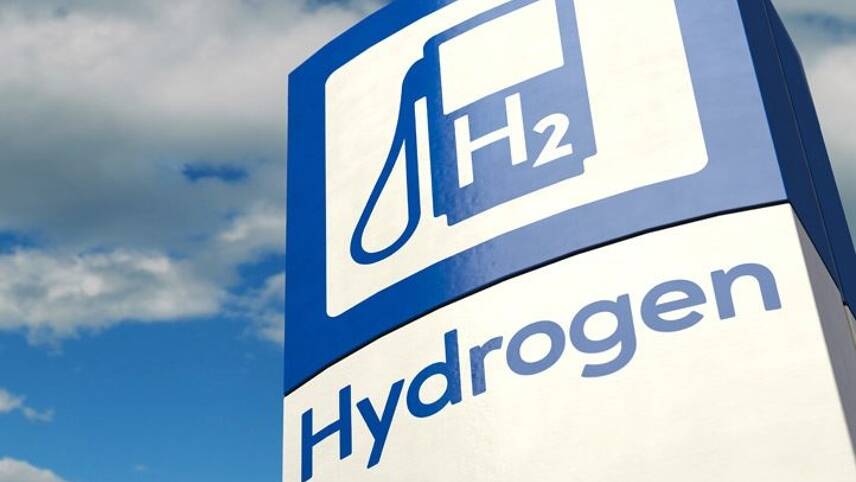Register for free and continue reading
Join our growing army of changemakers and get unlimited access to our premium content

Currently
The Hydrogen Taskforce has released new statistics this week, outlining how hydrogen can support the UK’s green recovery and net-zero commitment.
According to the research, 11.3TWh of hydrogen would be required to support end use in sectors such as heat, transport, power and industry by 2035 annually. However, only 20% of this annual demand would derive from green hydrogen, with the remainder coming from “blue” hydrogen that would include carbon capture utilisation and storage (CCUS) technology.
Currently, around 95% of global hydrogen production comes from fossil fuel feedstocks.
According to the Committee on Climate Change (CCC), hydrogen and CCS are both “non-optional” components of the UK’s transition to net-zero.
Fortunately, the Government has taken steps to funnel investment into CCS, committing £800m to establish CCS sites in the mid-2020s and 2030. The EAC also welcomed the recent £139m commitment to cutting emissions in heavy industry through hydrogen and scaling up CCS.
The taskforce’s Economic Impact Assessment noted that the half of the £18bn would account for end use benefits, with production, distribution, transmission and storage accounting for the remainder.
Additionally, the assessment found that deploying hydrogen at scale would create 28,000 jobs in hydrogen production, 15,000 in transmission, distribution and storage infrastructure and a further 31,000 jobs across different end uses.
Jacob Young MP, Member of Parliament for Redcar and Chair of the APPG on Hydrogen said: “This research from the Hydrogen Taskforce proves that Hydrogen is a real growth opportunity for the UK and will kickstart a green jobs revolution. The UK is already a world leader in this hydrogen technology but we must go further.
“Communities like mine in Redcar & Cleveland are ready to spearhead the development and deployment of this new industry, and to play our part in seizing this opportunity. I look forward to seeing further announcements from business and Government in the coming months, to help ensure the UK meets its carbon commitments and unlock these 75,000 jobs.”
The Hydrogen Taskforce was set up in March, led by Shell and BP, and is lobbying for the UK Government to invest £1bn to boost hydrogen production in the UK. The taskforce believes that the UK can be home to a “world-leading hydrogen economy” by investing £1bn on funding for hydrogen production, distribution and storage projects that could be used for transport and heating and blended into the gas grid.
The taskforce has called for amendments to be made that would enable hydrogen to be blended into UK gas grids and for the UK government to support trials for hydrogen-ready boilers and hydrogen refuelling stations for road transport by 2025.
The EAC received almost 100 responses to a July inquiry on technology advancements to help combat climate change. Respondents were adamant that a national hydrogen strategy would boost confidence in the sector and help organisations and innovators trial new projects.
Shell’s hydrogen business development manager Mike Copson added: “Hydrogen is well-positioned to play a role in the UK’s transition to a cleaner and lower-carbon energy system. This research illustrates the economic opportunity that hydrogen offers the UK and underlines the need for hydrogen to be at the centre of planning for a green recovery that will deliver lasting, sustainable growth.”
The Environmental Audit Committee (EAC) is exploring the role of low-carbon hydrogen production and utilisation in accordance with the UK’s wider efforts to spur economic growth and reach net-zero carbon emissions by 2050.
The EAC received almost 100 responses to a July inquiry on technology advancements to help combat climate change. Respondents were adamant that a national hydrogen strategy would boost confidence in the sector and help organisations and innovators trial new projects.
Matt Mace


."..are both non-optional components of the UK s transition to net-zero."
or
"non-optimal"?
With
"around 95% of global hydrogen production comes from fossil fuel feedstocks." and the vast amounts of non-saline water required for hydrolysis?
Luke is quite correct.
Hydrogen, all of it, requires another form of energy for its production, and in volume/volume terms has only one third of the energy content of methane.
A nuclear/hydrogen production process using high temperatures is the only viable option I see, but not yet!!!
Man made CO2 is only about one fiftieth of all the CO2 in the atmosphere, our contribution is a fraction of that. Well??
Richard Phillips
Respondents were adamant that a national hydrogen strategy…." is somewhat misleading.
There were significant submissions questioning the proposed H2 strategy, particularly from the buildings stakeholders end.
The 18b sounds worryingly like the extra bill the end consumers will have to pay to the fledgling H2 industry to get it up and running.
How about a more rational debate about how to harness H2 undoubted energy storage abilities, without having to throw shed-loads of money at converting all the gas grid?
Chris Twinn (The EDGE think tank)